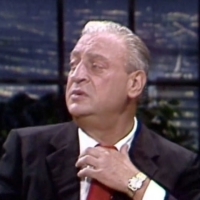Disturbing Details Discovered In Robin Williams’ Autopsy Report
Robin Williams was one of the most beloved comedians of all time. He entertained generations of audiences on stage and in the movies through a body of award-winning work that span more than four decades, and his big personality was dwarfed only by the size of his generous heart. So it was as shocking as it was heartbreaking when Williams was found dead by suicide on August 11, 2014, in his home in Tiburon, California. “We are thinking of, we’re thinking of Robin’s family. We’re thinking about everybody he touched around the world throughout his life.” He had been diagnosed with Parkinson’s disease before his passing, but his autopsy showed that was just part of the story – and part of a life story that began in Chicago on July 21, 1951. By the late 1970s, Williams’s over-the-top stand-up comedy routine caught the eye of “Happy Days” producer Garry Marshall. Marshall was impressed with the young comic and in 1978 he cast Williams to play a goofy alien from the planet Ork, known as Mork, on “Happy Days.” Mork proved so popular that ABC spun the character off onto his own show that very same year. Running from September 1978 through May of 1981, “Mork and Mindy” catapulted Williams into household name notoriety.
00:01:10
While his career was taking off, however, the pressure was proving too great for Williams. According to the website The Recovery Village, Williams began using cocaine and alcohol to help manage his overnight success.
00:01:21
There are also various rumors and stories when it comes to Williams’ drug abuse. In fact, It’s widely known that the actor was partying with fellow comedian John Belushi the night the “Saturday Night Live” actor died from an overdose of cocaine and heroin. The death of his friend, coupled with the birth of his son, convinced Williams to start dealing with his addictions. Over the next several decades, Williams reportedly managed his addictions to varying degrees of success. In 2003, while on set in Alaska filming the movie “The Big White,” addiction reared its ugly head once again in Williams’ life. The comedian talked about the experience with The Guardian in 2010, saying, “I was in a small town where it’s not the edge of the world, but you can see it from there, and then I thought: drinking. I just thought, hey, maybe drinking will help. Because I felt alone and afraid.” According to The Hollywood Reporter, after an ultimatum from his son, Williams checked himself into an addiction treatment center in August of 2006. To the general public, things seemed to be better.
00:02:16
But on August 11, 2014, Rebecca Spencer, Williams’ long-time personal assistant, found the actor dead in his bedroom. The effects from a recent diagnosis of Parkinson’s, a disease that attacks the central nervous system causing tremors, stiffness, and slurred speech, were beginning to settle in, though he reportedly had doubts about the diagnosis.
00:02:35
According to Vanity Fair, the disease was affecting his memory the most, causing him to have difficulty remembering his lines. And while the consensus for William’s suicide initially seemed to point toward depression, Susan Williams, Robin Williams’ widow, insisted there was more to it. When the coroner division of the Marin County Sheriff’s Office released Robin Williams’ autopsy report two months after he died, it revealed conditions that his family and close friends already knew about and at least one that they didn’t, according to ABC News. The comedian had a hard-to-diagnose condition called Lewy body dementia and it could have played a part in his decision to end his life. According to the Alzheimer’s Association, Lewy body dementia, also known as LBD, is a progressive dementia that leads to: “[A] decline in thinking, reasoning and independent function of abnormal microscopic deposits that damage brain cells.” It’s often hard to diagnose whether symptoms are caused by LBD or Parkinson’s disease. And since he had depression, it wasn’t unusual that the toxicology report found antidepressants in his system, along with caffeine and the Parkinson’s drug levodopa. And, although Williams had a history of alcohol and drug abuse, the autopsy found none in his system. In addition to LBD, Williams’ autopsy report also found changes in his brain that are characteristic of both Alzheimer’s and Parkinson’s disease. According to The Hollywood Reporter, these changes impacted his behavior in the days leading up to his death, but his wife Susan had revealed that the comedian seemed fine the night before his death. Williams’ death came as a shock to not just his family, but his friends and millions of fans around the world who grieved the loss of the beloved entertainer.
00:04:08
If you or anyone you know is having suicidal thoughts, please call the National Suicide Prevention Lifeline at 1-800-273-TALK (8255).













